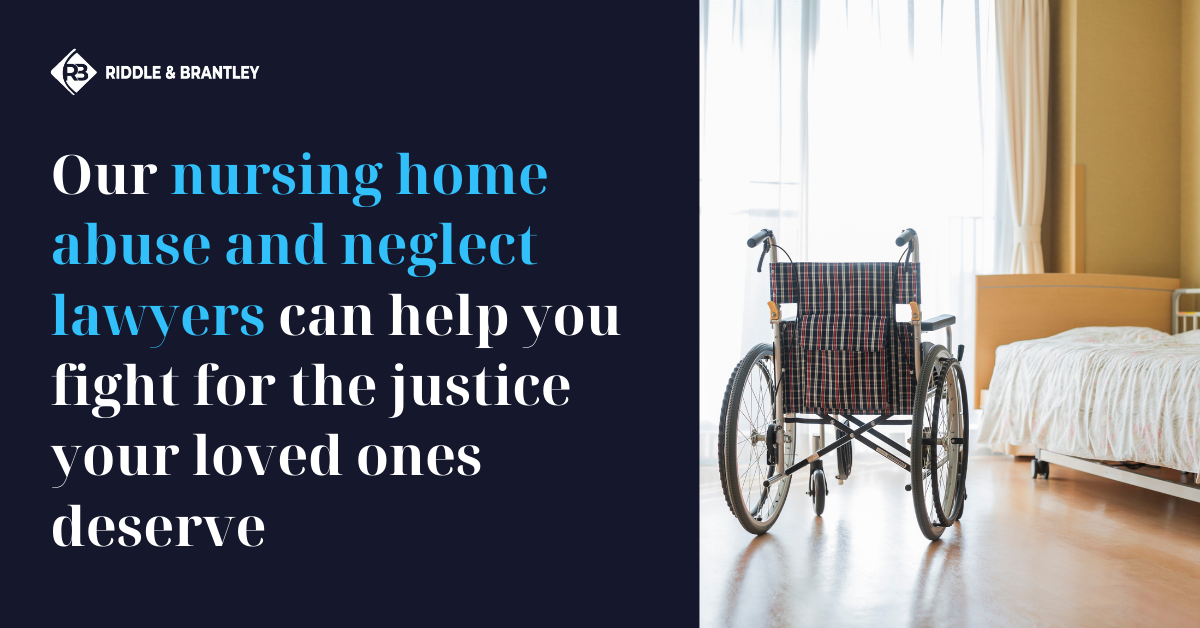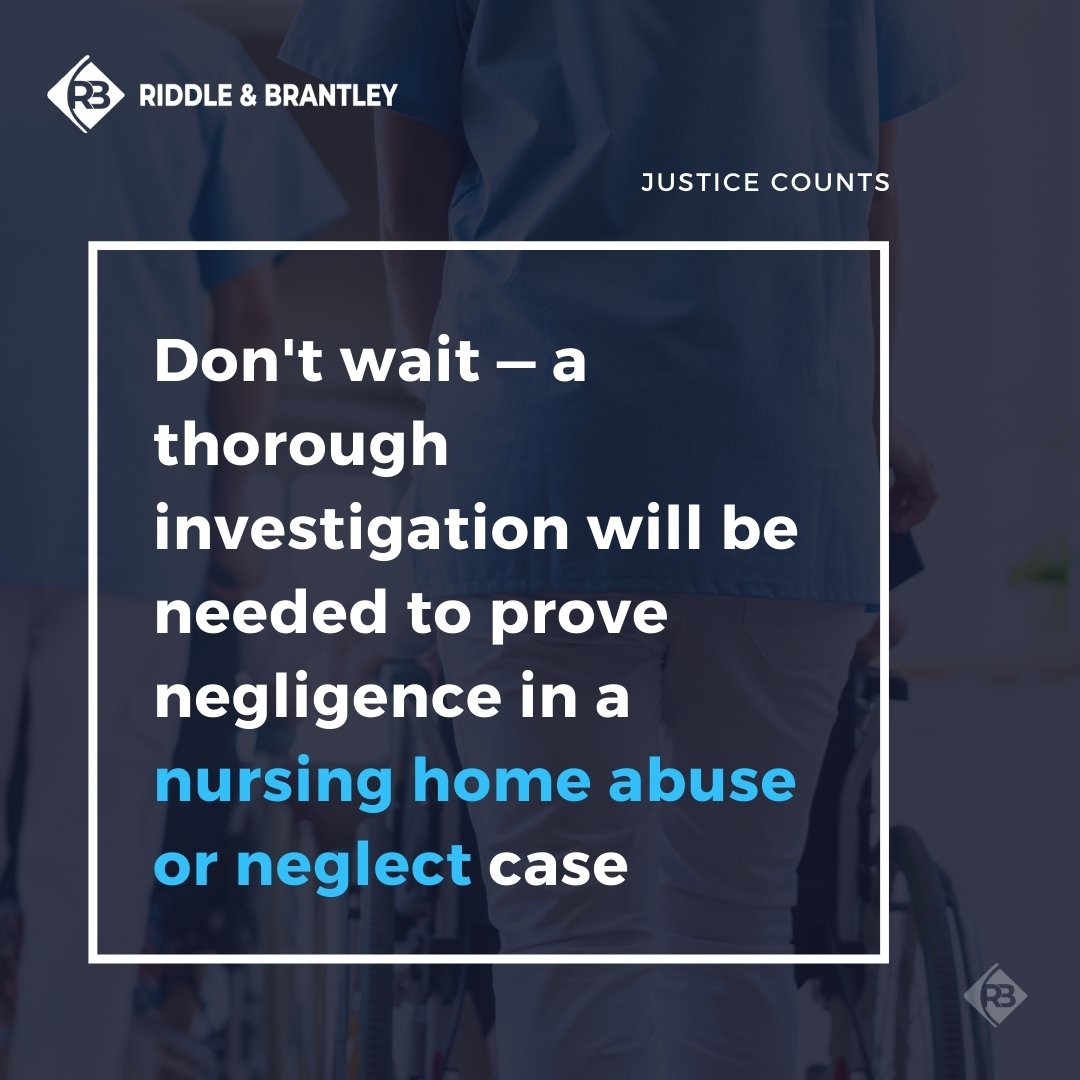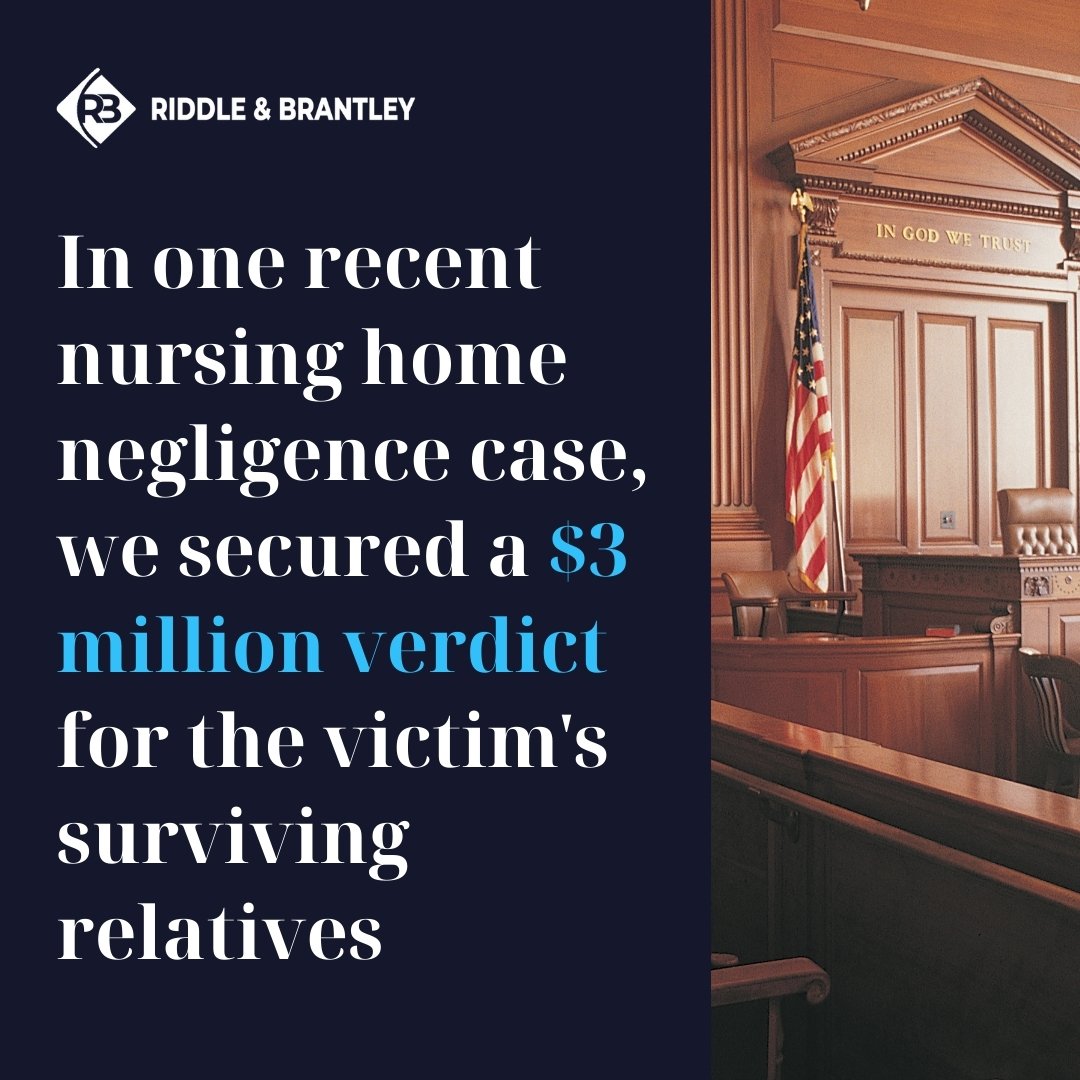North Carolina Nursing Home Abuse & Neglect Attorney
North Carolina Nursing Home Lawyer
Sending your loved ones to a nursing home is often a tough decision. When the time comes for your grandparents or parents to move into a nursing home, you want to ensure that they receive the best care possible. Unfortunately, nursing home neglect and abuse is common, and a North Carolina nursing home abuse lawyer can help protect your loved one’s rights and fight for justice.
Nursing Home Abuse Statistics
The National Council on Aging (NCOA) reports that around 5,000,000 individuals experience some form of elder abuse in the United States each year. Even more alarming, the World Health Organization’s (WHO) 2020 study found that 64% of nursing home employees admitted to some form of abuse on their residents. When family members entrust a nursing home to care for their elderly loved ones, they expect adequate treatment to be given. Unfortunately, nursing homes have a history of taking advantage of innocent elderly residents.
Experienced Nursing Home Abuse and Neglect Lawyers
 At Riddle & Brantley, we work hard to defend the rights of the elderly community in North Carolina. The safety of nursing home residents is left up to the facility and staff within them; however, far too many elderly individuals are suffering. Even worse, many nursing home abuses go unreported. It is estimated that only 1 out of 14 nursing home abuse cases are ever reported.
At Riddle & Brantley, we work hard to defend the rights of the elderly community in North Carolina. The safety of nursing home residents is left up to the facility and staff within them; however, far too many elderly individuals are suffering. Even worse, many nursing home abuses go unreported. It is estimated that only 1 out of 14 nursing home abuse cases are ever reported.
Our nursing home abuse attorneys believe that this is unacceptable treatment. The individuals of the elder community deserve to be treated with respect and dignity. At Riddle and Brantley, we will fight to ensure that your loved ones obtain the justice they deserve.
Do you have a loved one who is in a nursing home? Are you becoming more suspicious that they are not being treated humanely or fairly? Our North Carolina nursing home abuse lawyers can assist you in pursuing your potential claim for abuse and neglect. When it comes to nursing home issues, timing is critical. These cases often require extensive investigations and evidence against the nursing home. Don’t wait.
For a FREE, no-obligation consultation with an experienced North Carolina injury lawyer handling nursing home abuse and neglect claims, please call 1-800-525-7111.
During your free, no-obligation consultation an experienced nursing home attorney will review the facts of your case and determine if we can help you.
As always, there are no upfront costs and we don’t get paid unless you do. If we don’t recover compensation for your loved one’s abuse or neglect, you won’t pay any attorney fees in your nursing home lawsuit.
Types of Nursing Home Lawsuits
Because a good portion of nursing home abuse is not reported, family members must remain vigilant of their loved one’s health. Our attorneys are experienced in handling many types of nursing home neglect and abuse lawsuits, including:
- Physical or mental abuse
- Bed sores
- Improper feeding or nutrition
- Neglect that leads to wrongful death
- Improper care
- Sexual assault
- Ignoring residents’ essential needs
- Failure to provide adequate healthcare
Unfortunately, 90% of nursing homes are understaffed. This insufficiency, coupled with the number of abuse cases that go unreported, creates the perfect conditions for nursing home neglect and abuse.
Don’t Wait
 Don’t let your suspicions go on any longer. The life and well-being of your loved one may be at stake. Consult with one of the compassionate and skilled attorneys of Riddle & Brantley to determine the details of your case. We will assess the merits of your claim and establish a course of legal action, so you can hold negligent parties accountable.
Don’t let your suspicions go on any longer. The life and well-being of your loved one may be at stake. Consult with one of the compassionate and skilled attorneys of Riddle & Brantley to determine the details of your case. We will assess the merits of your claim and establish a course of legal action, so you can hold negligent parties accountable.
For a FREE consultation with an experienced North Carolina nursing home abuse lawyer, please call 1-800-525-7111.
The consultation is free and there are no attorney fees unless we win your nursing home lawsuit and recover compensation for you and your loved ones.
Consequences of Nursing Home Abuse and Neglect
Nursing home neglect, physical abuse, psychological trauma, and sexual assault is unacceptable. Unfortunately, many families are unaware that any nursing home abuse is taking place until it is too late. In an effort to prevent these injustices from arising, families need to understand and identify the most common signs of abuse.
Indications of nursing home neglect or abuse may include:
- Depression
- Anxiety
- Dehydration
- Burns
- Bedsores
- Withdrawal
- Strange behavior
- Bruising
- Poor hygiene
- Malnutrition
- Discomfort or agitation in the presence of nursing home staff
It is crucial for you to watch out for these signs of abuse and protect the health and safety of your elderly loved ones. If you believe that nursing home abuse is taking place, let us help you explore your options and protect your loved one’s rights. During your free consultation, we will evaluate the facts of your claim and advise you on your best available legal options.
With over 220+ years of combined legal experience, our personal injury lawyers have been holding negligent parties accountable across North Carolina. Our legal team would love to help you obtain justice for your loved ones.
Results for Nursing Home Abuse Victims
Our firm has recovered millions of dollars in compensation for victims of injury (see disclaimer below) and we are proud of the results we’ve secured for those affected by nursing home negligence, including a $3,000,000 judgment against a nursing home in Wayne County, where mishandling of medical equipment led to our client contracting Hepatitis B, which ultimately resulted in their death (see disclaimer below).
For a FREE consultation with a nursing home abuse attorney handling claims in North Carolina, please call 1-800-525-7111.
There are no upfront costs and no attorney fees unless we recover compensation for you.
“They turned a heartbreaking situation completely around.”
–Tonya T., Riddle & Brantley client
Nursing Home Lawyers Ready to Fight for Your Loved One
 If you suspect your family member is being abused or neglected in a nursing home, contact our firm today for a free consultation by calling 1-800-525-7111. Our attorneys can report the abuse to the proper authorities and take the appropriate steps to ensure everyone’s rights are protected.
If you suspect your family member is being abused or neglected in a nursing home, contact our firm today for a free consultation by calling 1-800-525-7111. Our attorneys can report the abuse to the proper authorities and take the appropriate steps to ensure everyone’s rights are protected.
It is critical to document all information relevant to the incident, as detailed accounts are more likely to prompt investigations. Call 1-800-525-7111 to speak with an experienced attorney today so we can begin a comprehensive investigation.
For more than 35 years, Riddle and Brantley has been fighting for justice for all North Carolinians, including victims of nursing home abuse and neglect.
We understand how to file both nursing home abuse reports and lawsuits against negligent facilities and employees. There may be a time limit for filing a nursing home abuse case, so please call 1-800-525-7111 immediately to speak with one of our injury lawyers.
“Your loved ones deserve dignity and respect. We would love to help fight to protect their rights and well-being.”
–Gene Riddle, attorney and managing partner, Riddle & Brantley
If you are concerned you don’t have the ability to pay for an attorney, don’t worry — we work on a contingency basis. This means we don’t get any attorney’s fees unless we successfully recover compensation for you.
We have offices throughout North Carolina, and even have retired law enforcement investigators that can meet with you.
Give us a call at 1-800-525-7111 today to learn more about your rights and what we can do to fight for your loved ones. At Riddle and Brantley, we wholeheartedly believe that all people deserve justice, and we would love to help you if we can.
Justice Counts.
*** Disclaimer: The results mentioned are intended to illustrate the type of cases handled by the firm. These results do not guarantee a similar outcome, and they should not be construed to constitute a promise or guarantee of a particular result in any particular case. Every case is different, and the outcome of any case depends upon a variety of factors unique to that case.